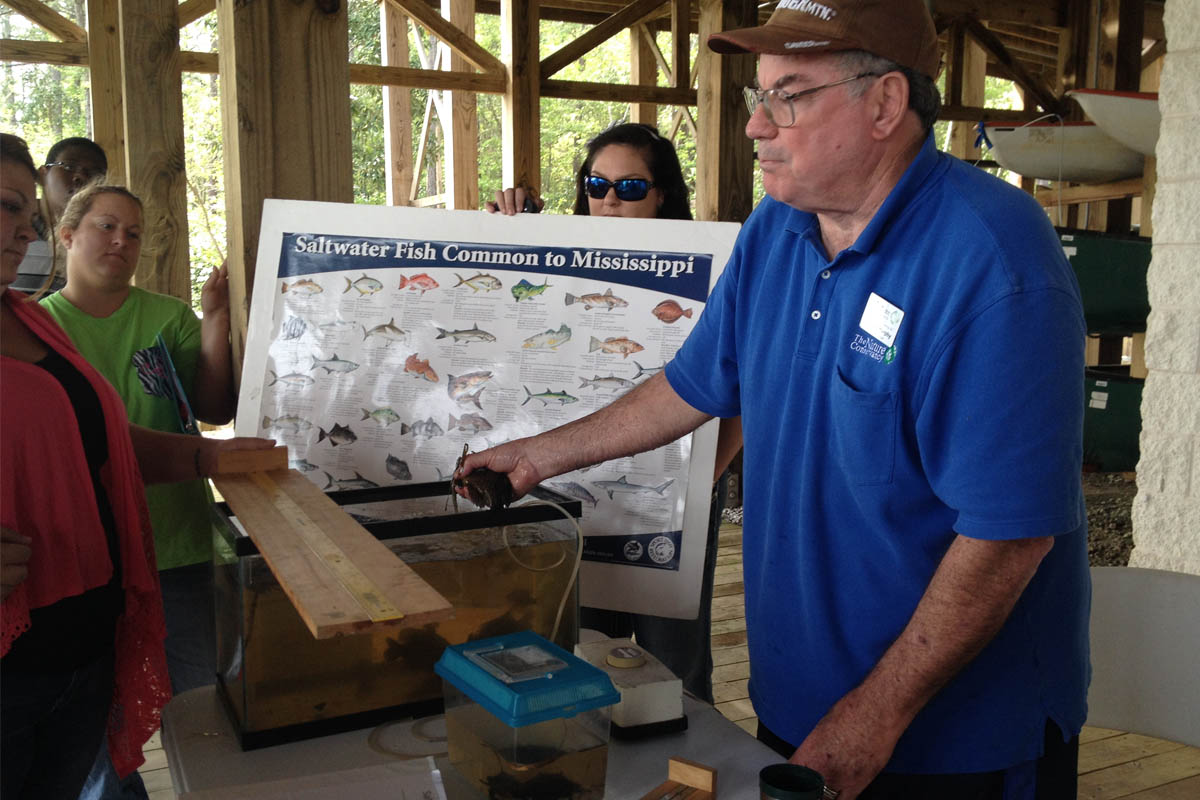MGCCC Students Participate in Bioquest at the Estuarine Education Center
Biology and zoology students at Mississippi Gulf Coast Community College’s Jackson County Campus spent a week helping the Pascagoula River Audubon Center and its partners conduct a bioquest as part of the Pascagoula River Biodiversity Inventory. The inventory is an ongoing effort to document all living things on the Pascagoula River.
Bioquests, such as the one conducted April 8-11 at the Estuarine Education Center on MGCCC’s Jackson County Campus, are focused searches for organisms within a given area that contribute to the documentation of flora and fauna. Teams of scientists worked with the students to collect organisms and catalog them. On Friday, the public was invited to join the students and scientists to watch presentations and learn about the collection methods concerning the biodiversity of the area.
Students made presentations about what local animals eat based on scat found in the area. Others documented prints made by animals along the EEC’s nature trail. Some students helped trap and catch fish that were identified, measured and weighed for cataloging.
Diane Ehrman, whose Honors Biology classes participated in the bioquest, said the program allows students to participate alongside scientists in conducting fieldwork. “This week students got hands-on experience doing what biologists do,” she said. “They were very excited about it, and many of them have become enthusiastic about careers in biology. It also teaches them an appreciation for the environment that they may not have had before. This is something I hope we can participate in every year.”
Dr. Mark LaSalle, director of the Pascagoula River Audubon Center, discussed the variety of birds in the area, some of which nest in the Pascagoula River region and others that migrate through the area. He also talked about the variety of habitats in the campus area, from wetlands to forests. “One of the reasons we see such a tremendous variety of animals along the river area is because of this land diversity. Some animals like the water while others like sandy areas. Still others like the deep forests. You have all of that right here on campus.”
LaSalle said the Audubon Center works with a wide range of partners to highlight the value of the unique river and to inspire people to ensure continued conservation of its rich natural heritage. “Young people like the ones participating in this bioquest are key to maintaining that heritage and an appreciation of this environment,” he said. “We hope to continue working with the college and students to catalog more birds, wildlife and their habitats in the area around the Jackson County Campus and along Mary Walker Bayou.”
For more information about this project, contact Dr. Mark LaSalle at the Pascagoula River Audubon Center at (228) 475-0825. Visit the center’s website at http://pascagoulariver.audubon.org, or contact David Blackledge, MGCCC Estuarine Education Center director, at (228) 497-7738 or david.blackledge@mgccc.edu.


